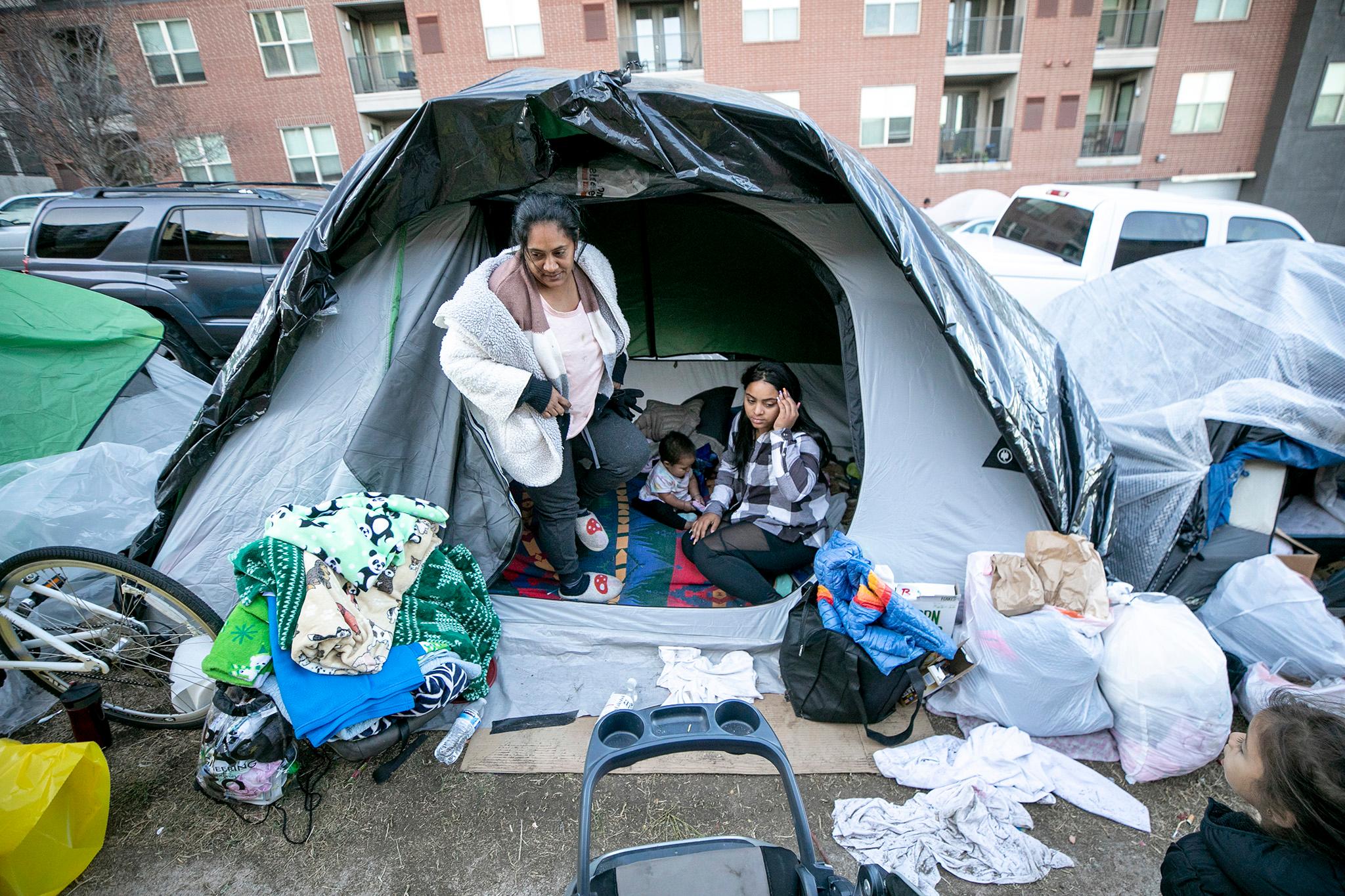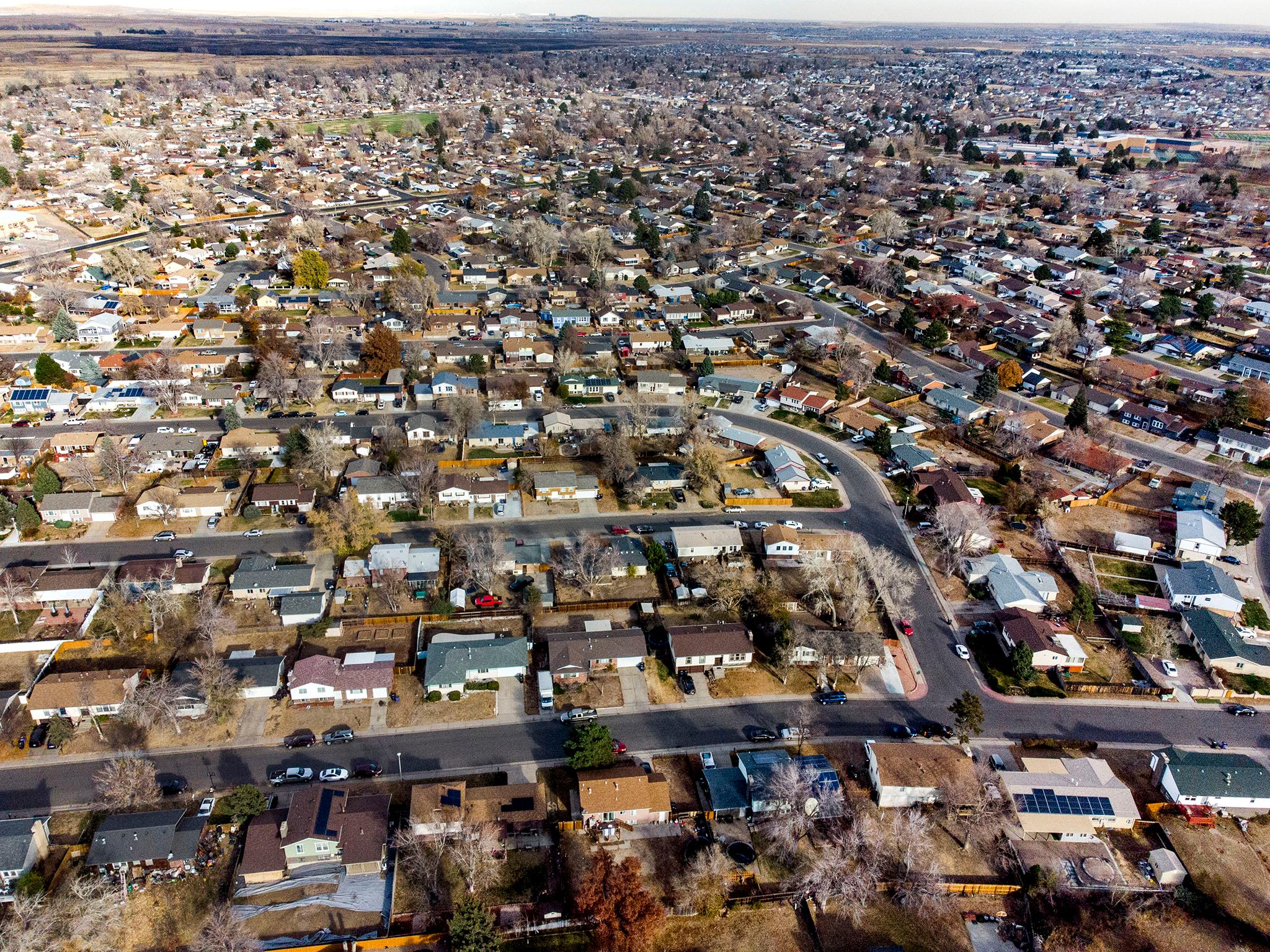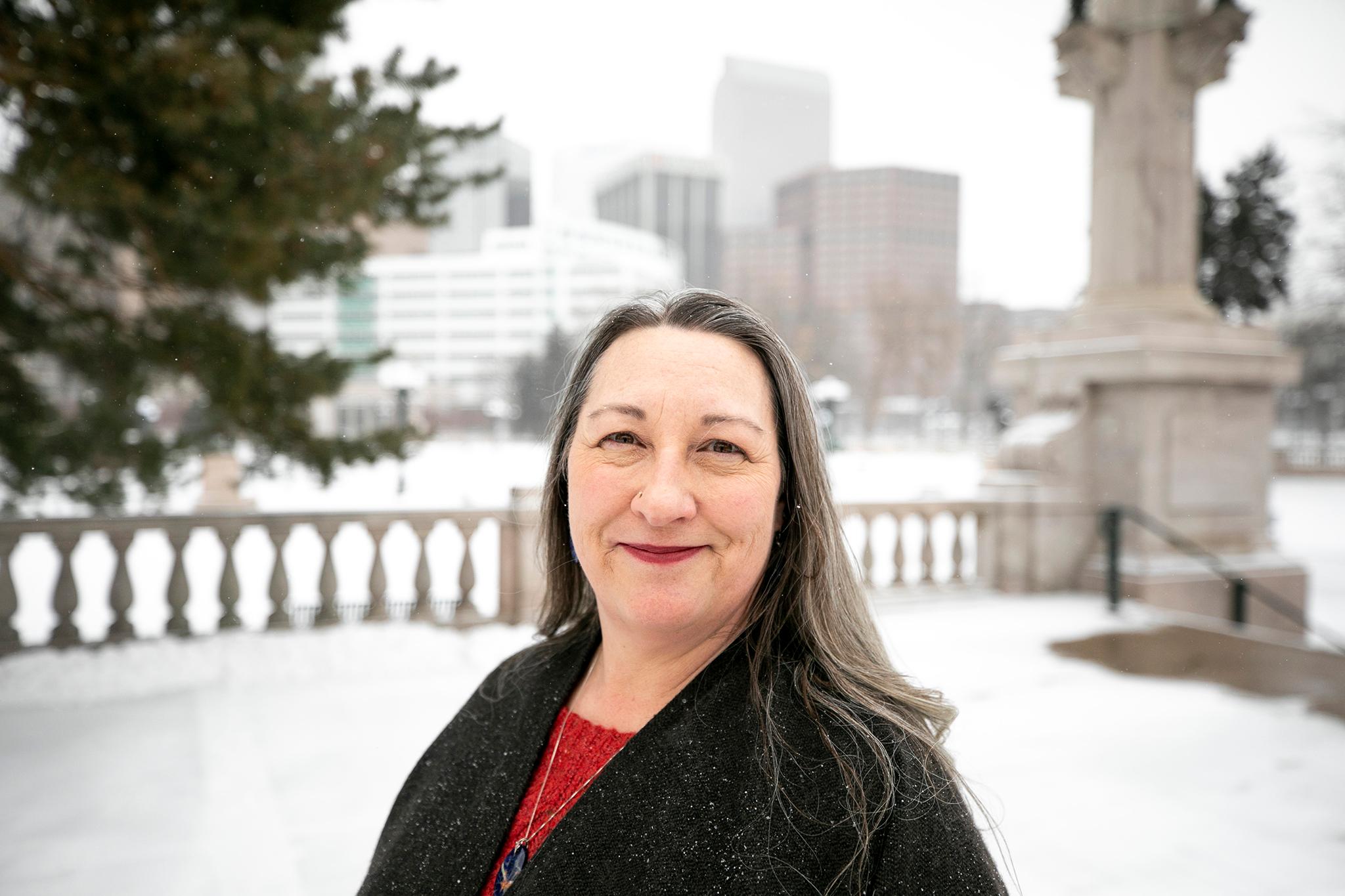Late at night on July 17, hours after Mike Johnston and City Council were sworn into office, District 11 Councilmember Stacie Gilmore received a text message that she was invited to stand behind the new mayor as he declared a homeless state of emergency.
At that press conference, Johnston created the appearance of consensus between City Council and his office -- the idea that they were all in it together.
"Talk about a dog and pony show," Gilmore told Denverite on Wednesday morning.
The Council members stayed quiet as he spoke. But Gilmore feared the administration's homelessness policy was already going off the rails.

As days rolled by, it was clear Johnston was flying the plane while building it. Six months in, that's still the case: Denver faces record evictions, shelters are full, busses of migrants are arriving nearly every day and many, including families with children, are sleeping in tents on the streets.
Gilmore, along with others in the city, believed Johnston was moving too quickly and without really knowing how he would actually house 1,000 people by December 31, as he pledged.
"I want to figure out how we can address the issues of people experiencing homelessness," Gilmore said. "We have a migrant crisis. But you know what, I'm not here to fulfill somebody's campaign promise."
Johnston's office declined an interview, instead offering a statement in response to Gilmore's critiques: "We are working diligently to get people living on the streets, both those experiencing homelessness and migrants, indoors as cold weather arrives. We are moving with the urgency this dire situation requires.
"We've been straightforward with Council members by providing them with information as soon as we have it. These situations change quickly and we will continue to inform Council as we work toward our joint effort to support those most in need."
The big question: Was Johnston's approach to ending homelessness about housing people, or the political optics of achieving the arbitrary goal of housing 1,000 people by the end of the year?
Instead of figuring out how to run the city, Gilmore worried he was still acting like he was running for office.
Johnston hosted dozens of town hall meetings about his House1000 plan, listened to concerns and pitched his proposals.
"You shouldn't be in campaign mode anymore," Gilmore said of Johnston. "You should be in good governance mode, where you're going to slow down, you're going to learn what you don't know. And you're going to be open to hearing people's concerns."
Not long after standing behind Johnston as he declared a homeless state of emergency, Gilmore took the helm of the council's Safety, Housing, Education & Homelessness Committee. She has now resigned that post, because she is critical of the mayor's strategy as well as its communication.
In her time in the role, she pushed the administration to be more transparent.
After Johnston was roughly a half hour late to a community meeting in her district, she asked him to be on time to show respect to residents eager to participate in the public process.
She struggled to pin down Johnston's administration on what success looks like.

Ultimately, Johnston picked what he described as an "all-of-the-above approach" and the administration decided that as long as someone remained inside for 14 days in any indoor space they would be marked down as someone with a successful housing outcome -- a metric Gilmore blasted and even Johnston described to Axios as a "mistake."
She has repeatedly asked the administration to properly notify her about community meetings in neighborhoods surrounding her district, instead of giving her less than a week's notice to promote events affecting Montbello, a neighborhood divided between her district and District 8. She wants her constituents, largely working people, to have time to rearrange their schedules and secure childcare to participate.
And she's asked Johnston's team to communicate with her office on what is happening in her district and surrounding ones -- all things she maintains the administration has largely failed to do.
Gilmore wants to ensure her residents have a say in future plans that affect the district. Without strong communication and transparency from the administration, they're left in the dark.
In early October, the administration opened a migrant shelter in her district, but it took her more than a month to find out about it, she said. That was her last straw.
"No one thought that it was important to send me a text message or share with me, 'Councilwoman, we have this activation in your district, and we want to let you know about it. So if you have any concerns, if residents have any concerns, we can be supportive and provide those resources to folks,'" she said.

As she sees it, the Johnston administration has steamrolled communities and also city agencies who were working on homelessness resolution long before this mayor took office.
She feared the city was "consolidating poverty" in largely working class, Black and Latino communities -- something Johnston's administration has repeatedly said it's trying to avoid. But so far most of the new shelters created under his administration have been in District 8, in Northeast Park Hill, one of the last plurality Black neighborhoods in the city.
Chairing the committee was taking up too much time, when she had pressing work to do on behalf of her constituents.
"I decided that it was best that I stepped back, so that I can fully advocate for Council District 11 in the way that my folks elected me to do," she said.
The decision followed a heated meeting with the mayor's Deputy Chief of Staff Evan Dreyer. Afterward, Gilmore told the Denver Post she felt "gaslit" by the administration.
On Wednesday morning, Gilmore chaired her last meeting as the head of the Safety, Housing, Education & Homelessness Committee and handed the reins to At-Large Councilmember Serena Gonzales-Gutierrez.
At the meeting, the committee approved sending a contract to purchase homes for micro-communities, and another for Salvation Army to provide three meals a day to three micro-communities, to City Council at large.
Dr. Joshua Barocas of the University of Colorado Anschutz School of Medicine offered a disturbing presentation about the effects of cold weather on people experiencing homelessness and how the city's threshold for activating warming centers is not rooted in the science of hypothermia and frostbite but is arbitrary and could lead to needless death and hospitalizations. Councilmember Sarah Parady plans to propose legislation to change that next week.
Within an hour of the Wednesday morning committee meeting, Gilmore sent Johnston an email about a potential homeless shelter at the currently active Crowne Plaza hotel on the border between Montbello and Aurora that she said would include 255 rooms, with 111 of those being doubles, plus a 9,000 square foot ballroom, another 60,000 square foot convention space and four parking lots.
Aurora has been entertaining purchasing the hotel and turning it into a shelter, she said.
The hotel is far from public transportation. If it's converted into a shelter, Gilmore's concerned residents will struggle to get to medical appointments and jobs -- issues other residents of Montbello face.
Montbello has been "systematically depressed economically for decades," and Gilmore has worked to revitalize the area, she said. She's concerned that the creation of a shelter on the Aurora border could upend that effort.

"The surrounding businesses rely on the day-to-day business from conventions and events to survive, and taking that away will make it much harder for those businesses to operate," she told the mayor.
Johnston's administration denies having a role in the project.
"We are always interested in regional collaboration to solve our toughest problems, but the Johnston Administration is not currently working on a project related to the Crowne Plaza," said the mayor's spokesperson Jordan Fuja in a statement.
Gilmore, who said she has spoken to city staffers about Denver's interest in working on a shelter at the Crowne Plaza, wants transparency and concrete answers to her questions. And she's refusing to stay silent about matters that will affect residents in her district, even if that's what the administration has occasionally asked her to do.
"I'm not going to be an actor within this political drama," she said. "I'm going to separate myself so that I can ask the questions I need to ask and advocate on my community's behalf."











